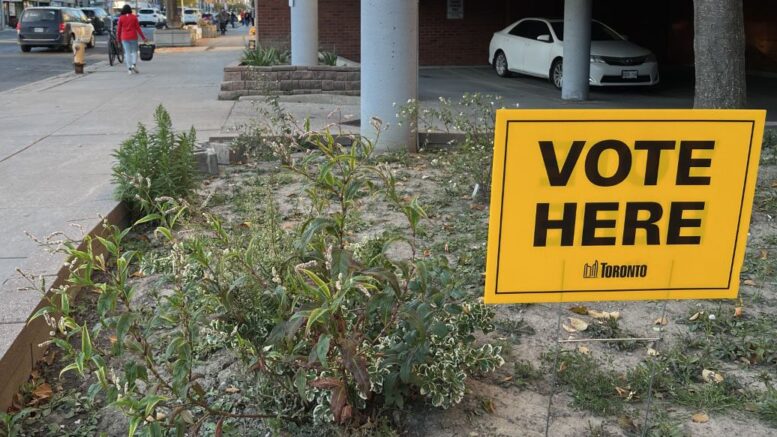The municipal election on Oct. 24 brought nine new councillors into city hall, including one who defeated the John Tory-endorsed incumbent Mark Grimes.
While Tory was able to secure a third term as mayor, winning a majority of votes, his endorsements of unsuccessful candidates indicate his influence could be waning.
“[Tory’s] support for particular candidates in the wards was not taken up by the voters as strongly as it would have been in the past,” says Dr. Roger H. Keil, political science professor at York University “While the Mayor was able to sustain his power personally, clearly his regime of governing showed some weaknesses.”
For a progressive city
An undercurrent of this municipal election was the emergence of progressive candidates and organizations that support them. One of those organizations is Progress Toronto, a non-profit organization that “advocates and organizes for a more democratic, socially just, and progressive city,” according to its website.
Progress Toronto supported nine candidates for councillor, with five of them winning their races. This includes Amber Morley, the only candidate to unseat an incumbent, Tory-supported Mark Grimes in Ward 3 Etobicoke-Lakeshore.
“I do think there’s reason to believe that organizations, like Progress Toronto in particular — progressive advocacy organizations — have been demonstrating that they can make a dent into the status quo,” Keil says.
Two of the three candidates Tory supported in races without an incumbent lost.
The third was Jon Burnside, former police officer and councillor for Ward 26 before it was dissolved in 2018, who won in Ward 16 Don Valley East this time.
A stronger mayor
While a younger, more progressive group of councillors have arrived, Tory’s new “strong mayor” powers could still give him more influence over city council than he had last term.
The new powers, introduced by the provincial government for both Toronto and Ottawa city governments, gives the mayor more influence over the city than when the mayor was effectively equal to each of the councillors.
As a strong mayor, Tory would be able to veto certain council decisions, appoint and dismiss specific city employees, as well as prepare and present the city’s budget.
While organizations like Progress Toronto have said these powers could undermine Toronto’s democracy, Keil expects Tory to use them sparingly.
“[Tory] is a very conservative conservative, which means that he is not going to make big changes or rapid change,” Keil says. “Of course, he has allegiances with certain groups in the development industry and business industry. After all, he is a business executive himself…. It is unlikely that you will see conflict by using these strong mayor powers. He will only use them when he really needs to.”
Provincial politics tend to dominate municipal politics and Premier Doug Ford’s new More Homes Built Faster Act is an example of this, Keil says. The act bypasses zoning laws, certain fees, and aspects of the conservation authorities, as well as allowing developers to build residences for up to three units on land zoned for one.
“[Tory] now finds himself in a bind between a rejuvenated and much more diverse, perhaps more progressive council on one hand and a provincial government that is digging in its heels and is attempting to push through their own objectives,” Keil says. “He, as a strong mayor, can only be as strong as the provincial government allows him to be.”

